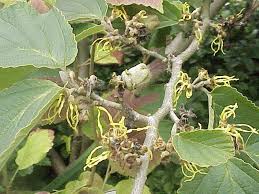Edward Cranch, Ph.B., M.D., Erie, Pa.
The sanitarians of the world have long busied themselves on the consideration of habitual aids to natural energy, for which a strong craving has existed in every age and climate know to man.
The average list includes condiments, sweetmeats and carbon ate waters with fancy syrups and cordials; coffee, tea and tobacco, with some choice of varieties and substitutes; malt, vinous and spirituous liquors; then the varied line of drug “tonics,” many of them extensively used in popular patent medicines, and comprising Phosphorus, Strychnia, Quinine, Cocaine, Morphine. Iron, Cannabis Indica, Damiana, Saw Palmetto, and many others more or less deadly.
Now what has Homoeopathy to offer and what to say in this field?
Aids to natural energy, either occasional or habitual, will always be demanded as long as we have sickness or injury and their consequent debility, as long as we have evils to plague the conscience, worries or excesses, loss of sleep, errors of diet that pinch or overload the stomach, ambitions for mental, physical or social excelling of others, or so long as the human race has tasks to lighten and pleasures to enhance.
Adherence to the law of cure will suggest a long list of drugs, usually styled depressants, that in small doses will have the desired opposite effect of stimulation, such as Agaricus, Gelsemium, various salts of Potash, Opium, Hyoscyamus, Hydrocyanic acid, Sulphuric acid, Picric acid, and others.
In particular, for the lassitude following a heated term, use Bryonia, Glonoine and Opium; in the sleepy, “born-tired” feeling, that comes from brain-fag, society-fag, or worry, think of Agaricus, Onosmodium, Nux moschata, Chelidonium, Lycopodium, Picric acid, Sepia and Silica.
In convalescence, Opium and Nux vomica and others. In nervous prostration of various kinds remember Paraldehyde, Chloroform, Phenacetian, Phosphoric acid, Baptisia, Psorinum, Zinc, Hepar, Aurum, Conium, Kali phosphoricum, Cocculus, Calcarea Phosphorica, Physostigma, and others, all in small doses.
These only give a hint of the immense armamentarium at our call which we can utilize in treating the sick.
Still, with all this, patients will ask again and again, “Now, don’t you think I ought to have a tonic?”
To satisfy these anxious souls, who would like to have a big bottle of stuff like what they see their neighbors taking, and who will get “Greene’s Nervura,” or “Fellows’ Hypophosphites,” or somebody’s “Beef, Wine and Iron,” take them on the sly, and laugh you to scorn if you object; to ease their minds, the writer gives one or other of the many concentrated foods upon the market (not to be named here), and retains confidence while satisfying a fad and doing no harm.
More than this, it seems best for the patient, if no strong contraindication exists, to continue his or her customary tea or coffee, or tobacco, or even his ales, wine and liquors, if not used in excess. Otherwise you will often upset the patients more and make them slower in recovery if you disturb their fixed habits than if you let the confirmed habit alone.
Moderate stimulation aids in the assimilation of food, and often furnishes needed food for the nerves themselves, especially in good wines and liquors, yet a false sentiment tries to make the seeking of their abolition the sole test of good politics and good morals. Careful study of the situation in the Phillipines, by expert army surgeons, shows the value of wines and liquors in the tropics and proves that those who use without abusing them enjoy far better health than those who do not; hence, we should oppose the abolition of the army canteen and the efforts being made to exclude the liquor trade and supply from the Isthmus of panama.
The recent decision of the United States Government in the matter of the host of alcoholic patent medicines is a step in favor of a legitimate trade in good liquors, and the sooner these are properly protected by the “Pure Food” laws the better it will be for this and other communities.



